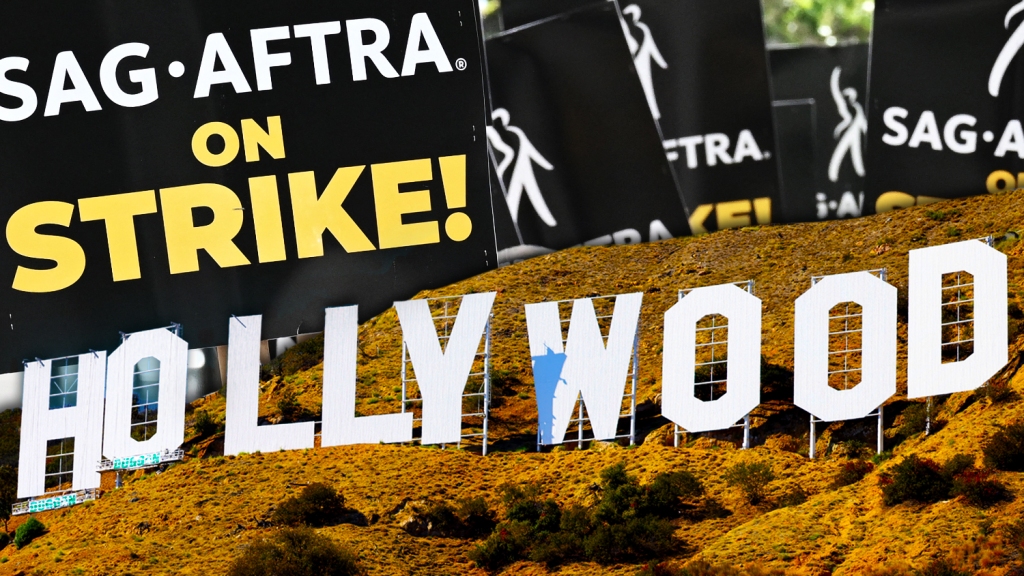
EXCLUSIVE: As indie producers and financiers in Hollywood and beyond wait on tenterhooks for waivers from SAG-AFTRA — letting them continue with their projects despite the strike — some are starting to get a green-light.
One confirmation letter sent out in lieu of an actual waiver, which aren’t quiet ready yet, notes that the “interim agreement” will include the terms of the last SAG-AFTRA counter in negotiations — including an 11% wage increase to the minimum rates from the 2020 Theatrical/Television Agreement [we hear it could be less than 11% under low budget film agreements].
Upcoming indie film Bride Hard, due to star Rebel Wilson, and at least a half dozen other movies now have permission to move ahead [waivers largely apply to film, given that most U.S. series involve a studio], and the flow of so-called “non-interference agreements”, and ultimately waivers/interim agreements, is set to intensify in coming weeks for projects with no connection to a studio or streamer.
It’s been a complex process, many say. There’s little recent precedent for a waiver template given that the last SAG strike for theatrical and TV actors was in the 80’s. The guild’s website promised weeks ago that when a strike was authorized, waivers would be granted, but it didn’t disclose terms, how, or when. Things are now speeding up with waivers — or, more specifically, equivalent letters certifying that one is on the way. Typical procedure would be for a producer to sign an agreement directly. But for now they can move ahead if they promise to confirm they will abide by its terms when it becomes available.
It’s a sensitive topic. Over the weekend, in a now deleted tweet, a crew member working on upcoming Simon West action-comedy Bride Hard posted that the film had been granted permission by SAG-AFRA to continue filming in the U.S. via an interim agreement. “Very grateful to SAG-AFTRA for clearing BRIDE HARD to continue production in Savannah. We are an independently financed, independently produced feature film with no studio or connection to the AMPTP. Thanks to the SAG-AFTRA Interim Agreement, productions like ours can continue,” read the scrubbed tweet.
We’ve confirmed the same update from another source on the movie — making it the first known film or TV project to be granted a waiver. We’ve reached out to SAG-AFRA for confirmation and any official update on the number of waivers it might grant in coming days.
The agreements are being granted to “truly independent producers” as long as they are not affiliated with the Alliance of Motion Picture and Television Producers and agree to be bound retroactively to whatever contract terms eventually are achieved with the AMPTP when the strike is settled.
There remain a number of questions, however, which mean the path to production won’t be straightforward. Among them: will actors want to take part in a project that gets a waiver when many other actors are unable or unwilling to work? That’s a risk that still has completion bond firms nervous even for films with waivers. Another risk — for productions in the U.S. — is if the WGA pickets SAG-AFTRA-waived projects, and Teamsters refuse to cross the lines. Will eligible producers crack on or will such a move be deemed too complicated and/or optically unpalatable?
Just qualifying for waiver consideration is complicated, not least due to pre-sale distribution deals that may have been signed with a streamer or studio in certain territories. Could those deals be jettisoned?
Some of those sending in applications for waivers are for sizeable projects with A-list actors aboard, also complicating SAG’s approach to waivers. Does it dilute a strike if a number of big productions get a waiver? Or conversely, does it sock it to the studios if business continues without them?
To help members traverse its labyrinth of struck and not-struck contracts, the guild has put out electronic flyers showing members which contracts they can and cannot work under.
We ran through those on Deadline last week.













